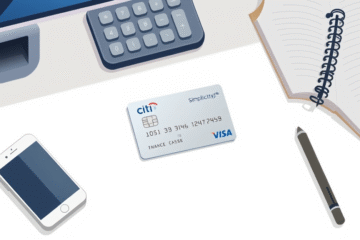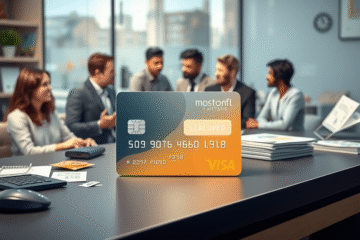How to Get a Credit Card Without a Bank Account
Credit Card applications often require a bank account, but for those without one, options still exist.
This article explores how you can successfully apply for a credit card without a bank account by demonstrating your creditworthiness.
We will delve into the various factors that credit card issuers consider, such as your credit score, employment status, and income.
Additionally, we will discuss specialized credit cards available for individuals lacking bank accounts, helping you navigate the application process and secure the credit you need.
Understanding How Credit Cards Work Without a Traditional Bank Account
Obtaining a credit card without a traditional bank account might seem challenging, yet it is quite feasible.
This concept revolves around leveraging one’s creditworthiness, demonstrated through a solid credit score, stable employment, and consistent income.
Credit card issuers often provide alternatives such as secured credit cards that cater to individuals without banking accounts.
These cards offer flexibility and the ability to build a credit profile without the direct involvement of a bank.
By utilizing alternative payment channels, such as prepaid cards or electronic wallets, consumers can manage their finances while enjoying the convenience and security of credit card use.
For many, it aligns with a growing reliance on digital solutions which further enhances accessibility for a wider audience.
Several motivations drive people toward seeking credit cards without holding a bank account.
These include:
- No local branches.
- Privacy concerns with traditional banks.
- Improving credit profiles independently.
Credit cards offer a payment solution that bypasses the need for a conventional savings or checking account, fostering financial inclusion.
Understanding the application process becomes crucial, and submitting proof of income and employment status during the application strengthens an applicant’s case, increasing the likelihood of approval.
This approach empowers individuals to harness financial resources and benefits without the constraints of a traditional banking system.
For further understanding, consider reading more about options from Axis Bank’s article on getting a credit card without a bank account.
Meeting Eligibility and Providing Documentation
When applying for a credit card without a bank account, it is essential to prepare your eligibility documentation ahead of time.
This includes gathering proof of income and employment status, which are crucial in demonstrating your creditworthiness to potential issuers.
Being organized and ready with the necessary information can significantly increase your chances of getting approved.
Essential Eligibility Factors
Understanding the key eligibility requirements for credit card applicants without a bank account is crucial for approval success.
Credit card issuers focus on criteria that establish creditworthiness and the applicant’s ability to manage debt responsibly.
Notably, employment stability, credit history, and income level determine eligibility.
To illustrate these factors, consider the table below:
| Criterion | Why It Matters | How to Prove |
|---|---|---|
| Employment Stability | Demonstrates reliable income | Recent pay stub |
Consider resources like the Citi’s credit card requirements guide to discover more eligibility details.
Strong employment status builds trust with the issuer, showing the applicant can meet monthly obligations.
Meanwhile, a positive credit history reflects responsible financial behavior, impacting your credit card application positively.
Verifying income through documentation, such as tax returns, further enhances your profile [see Discover’s guide on credit cards].
Alternative Proofs of Income
In situations where bank statements are unavailable, showcasing your income stability can be achieved through other important documents.
One option is to present pay stubs, which provide proof of regular earnings directly from your employer.
Additionally, utilizing tax returns, like Form 1040, can effectively demonstrate your financial history by offering detailed insights into your income over the relevant period.
Transitioning to another viable method, employer letters signed by your employer can attest to your income consistency, ensuring that you meet credit requirements.
Furthermore, providing profit and loss statements is key for self-employed individuals to highlight revenue and expenses.
Another alternative to bank statements includes other essential documentation.
For example, 1099 forms are crucial for freelancers or independent contractors to validate their income.
Recognizing the importance of Social Security award letters aids those receiving government benefits in corroborating their stable income sources.
Similarly, displaying pension or annuity income verification letters ensures those retired maintain proof in financial matters.
Utilizing such documents underlines your credibility and enhances your application process, improving your creditworthiness.
- Pay Stubs
- Form 1040
- 1099 Forms
- Employer Letters
- Profit and Loss Statements
Step-by-Step Application Process
Begin your journey by conducting thorough research on credit card issuers that offer options for individuals without bank accounts.
Entities like Mastercard provide programs specifically for applicants with no credit, which might include secured cards or specialty cards for non-bank account holders.
As you narrow down your options, check the eligibility requirements for each card to ensure that you meet the necessary criteria.
Bear in mind that you’ll need a decent credit score and proof of income.
Once you’ve identified the card that suits you, move forward by gathering essential documentation.
Assemble proof of identity, employment status, and income records, as these will bolster your application amidst the absence of a bank account.
During this phase, highlight any significant income sources to demonstrate financial stability to your potential issuer.
When ready, access the card issuer’s application page online and fill in your personal details, submit identification before anything else to avoid processing delays.
Use a valid mobile number for verifications and communications regarding your application.
After submission, wait for the issuer to review your application.
Stay responsive by checking your mobile for any updates or further requirements.
Upon approval, your credit card will be mailed to you.
Activate your card immediately upon receipt to begin utilizing new credit avenues.
Ensure responsible use to cultivate a positive credit history, which can benefit you significantly in future financial endeavors.
Using Secured Cards to Build Credit
A secured credit card serves as a vital tool for those looking to establish or rebuild their credit profile, especially for individuals who do not possess a bank account.
Unlike traditional credit cards, secured cards require a deposit requirement, which acts as collateral and typically matches your credit limit.
This deposit is refundable, ensuring that you can retrieve your money once you demonstrate responsible use and opt for account closure or an upgrade.
By effectively managing your payments and ensuring they occur on time, you signal trustworthiness to credit bureaus, which can lead to an improved credit score over time.
For those interested in learning more specifically about how secured cards function, like the Pros and Cons of Secured Credit Cards, are especially illuminating.
Moreover, the structured framework of secured cards offers an ideal environment to practice financial discipline.
Typically, cardholders begin with a low credit limit, coinciding with modest spending habits that adhere to their initial credit-building timeline.
As an applicant without a bank account, your ability to prove income stability and a willingness to place a deposit can greatly enhance your chances of approval.
Over time, positive usage records can transform a secured card into an unsecured one, free from collateral requirements.
This transition is not just a rite of passage but a testament to financial growth, acknowledged by credit institutions.
Therefore, secured credit cards offer a dual benefit of acting as a reliable stepping stone towards unsecured credit while simultaneously underscoring practical money management skills.
In conclusion, obtaining a credit card without a bank account is feasible by showcasing your creditworthiness and meeting specific eligibility criteria.
By understanding your options and preparing the necessary documentation, you can successfully enhance your financial opportunities.



0 Comments